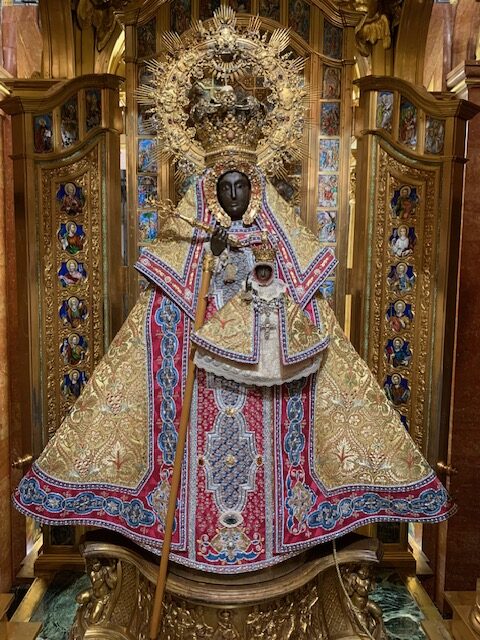
Peace and well
Daily reflection
07/05/2021
Gospel of saint John 15, 12 -17
The thought of Jesus, at the Last Supper, progresses in circles. He had already insisted that his followers must «abide» in him, and that specifically they must «abide in his love, keeping his commandments.»
He knows he adds endearing nuances: «I do not call you servants, but friends», «it is not you who have chosen me, it is I who have chosen you.» And above all, he points out a more committed direction of this follow-up: «this is my commandment, that you love one another as I have loved you.» Before him he had drawn the most logical conclusion: if he loves the disciples, they must remain in his love, they must reciprocate by loving him. Now another more difficult conclusion appears: they must love each other.
It is not just any love that he entrusts. He sets himself up as a model. And he has given himself for others, throughout his life, and he will do it more fully very soon: «no one has greater love than life for his friends.»
Reflection
«This is my commandment: that you love one another as I have loved you.» The word of Jesus does not need many explanations. The fruit of Easter that is proposed to us here is fraternal love. A love that is certainly not easy. As was not the love of Jesus to his own, for whom he, after having given his best energies, he offers his life. It is the concrete, sacrificial love of the one who gives himself: that of Christ, that of parents who sacrifice for their children, that of a friend who helps the friend even if it is with their own discomfort, that of so many people who know how to seek the good of others above their own, even if it is with effort and resignation.
In community life – and we are all in some way immersed in relationships with others – this is the most difficult aspect of Jesus Christ for us to imitate. Knowing how to love as he has done, leaving ourselves and loving not in word, but indeed, with understanding, with timely help, with kind words, with tolerance, with the free donation of ourselves.
When we go to communion, each time we are invited to prepare our meeting with the Lord with a gesture of fraternal communion: «fraternally give each other peace.» We cannot say «amen» to Christ if we are not willing to say «amen» to the brother who is close to us, with whom we live, even if he has a different or even unbearable temperament. We cannot commune the body and blood of Christ (with Christ) if we are not willing to grow in brotherhood with others.
The Christ whom we eat in the Eucharist is the «Body given for», «the Blood shed for». The attitude of love for others is consubstantial with the sacrament that we celebrate and receive.
Fr. Antony Majeesh George Kallely, OFM.










